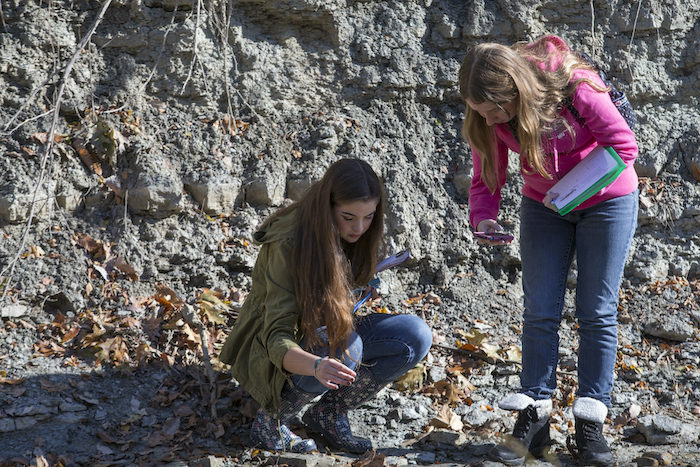B.S. Geology
What Can I Do With a B.S. in Geology?
Geologists and other earth scientists are typically employed in environmental consulting and planning firms, energy and mineral resource companies, materials analysis firms, or government agencies, such as the National Park Service, environmental protection agencies, and health departments. They are also employed in schools and universities, a wide array of both small and large corporations, legal practices, non-profit organizations, and even the news media. Because geoscientists are continually urged to recognize and address the world around them, they acquire and hone skills that are highly valued in many disciplines.
About 50 percent of our graduates obtain immediate employment in earth science disciplines. A bachelor's degree can provide the background to obtain support or assistant positions as a geologist in government agencies or consulting companies as well as the laboratory or field programs of mining and petroleum corporations and state or national geological surveys.
In recent years, about 30 percent of our graduates have furthered their education in graduate programs. A master's degree, which is the terminal degree of most practicing geologists, provides a wide opportunity for professional achievement and advancement. A Ph.D. in Geology, Earth Science, or Environmental Science can lead to an academic career of teaching and research. Geology majors may continue in the sciences after obtaining their undergraduate degree, but they may also go into law, business, or education. Environmental law and earth science education have become increasingly active areas in recent years.
What Classes Would I Take?
The Bachelor of Science (B.S.) degree in Geology is offered to those students who are particularly interested in graduate work and a stronger natural science foundation. The B.S. requires all the same courses as the A.B., with the addition of an extra departmental elective and additional courses in chemistry, physics, and mathematics or statistics. The B.S. also requires a research experience in which students partner with faculty members and graduate students to investigate a question of individual interest. In the past, students have taken advantage of such interactions to conduct publishable research and to travel with professors to their field areas in various parts of the world.